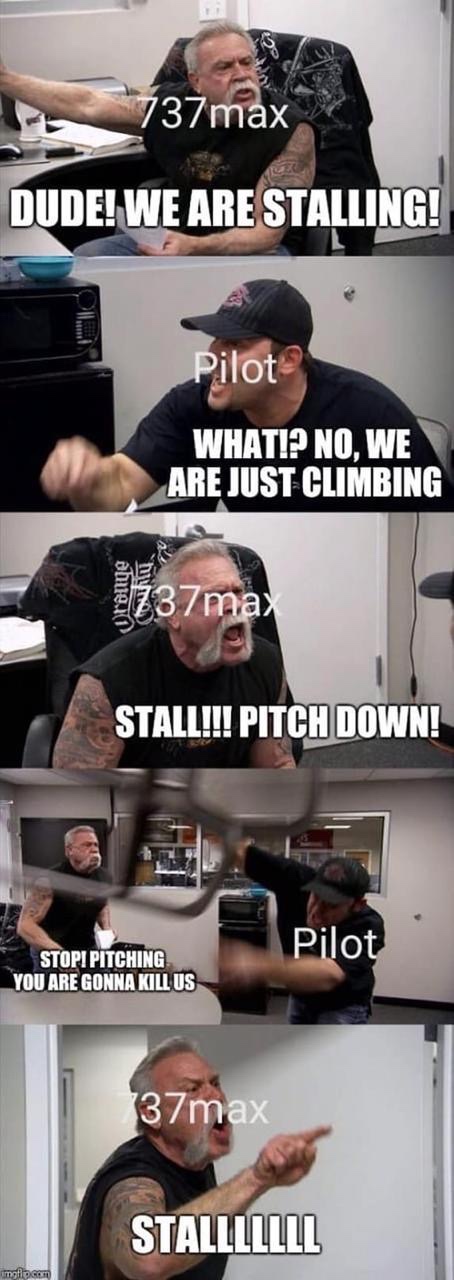Tantalum
Final Approach
- Joined
- Feb 22, 2017
- Messages
- 9,228
- Display Name
Display name:
San_Diego_Pilot
Did you see the comments? The drive by media got the job done, quite well, before the official findings are out. Mission accomplished.So the MAX is grounded, but not really grounded: https://news.yahoo.com/southwest-737-max-makes-emergency-211314603.html

It could be the algorithms on my Google News feed but all I've seen is doom and gloom about automation and Boeing. Ask any average person if they feel comfortable getting on a Boeing and they'll say "oh isn't that the Max thing that the computer crashed? No I'd rather not fly it" - just the comments on any of the article show people on a flaming hystericsThat's the only people in the media with an agenda? You don't think that Boeing, SWA and American Airlines PR machine is cranking full blast to get articles out there in the media saying how safe the plane is, the solution was just a simple procedure that every pilot is trained on, every pilot we put in the simulator was able to land safely? You think media agenda only goes one way? You're smarter than that.
-I am sure the PR machines there are in full crank, but, since they don't actually know the hard causes yet they also have to be careful from a CYA perspective what they put out there. The general media gets away with putting inaccurate, speculative, and bias'd stories out there free of retribution.. companies and private entities aren't awarded that same freedom
Thanks. It was a genuine question, and I received a genuine answer!If I was Boeing, I would have at least:
But, more to my point. (Emphasis below all mine.)
- Disclosed that the actual amount of stabiziler travel available to the MCAS was 2.5 degrees per activation instead of the submitted .6 degrees.
- I would have correctly classified this system as a critical safety system and required at least two sensor inputs to avoid erroneous activation instead of one sole input.
- I would have included MCAS system information in the Pilot's Systems Manuals.
- I would have allowed the stabilizer trim brake system to stop trim movement opposite to pilot elevator input.
I'm pretty sure Boeing execs have flown their products, including the Max 8. Funny to think that a world may exist where Boeing execs would not fly their own product. Reminds me of the Microsoft presentation I saw once (given by Microsoft) and the presenter was using a Macbook Pro. On a serious note, I read somewhere that the original Boeing 747 PW engines were having stall issues.. PW kept saying it was a non issue, so Boeing took the PW folks up and put the plane in a high AoA environment and I think they ended up flaming out something like 3 of the 4 engines to give the PW guys a proper fright. The issues were fixed after this. **I can't find the source, but I swear I saw this story recounted by the test pilots in either a Science, or Smithsonian, or History channel thing on the 747And/or make sure there is at least one Boeing executive, and FAA person on board each flight



